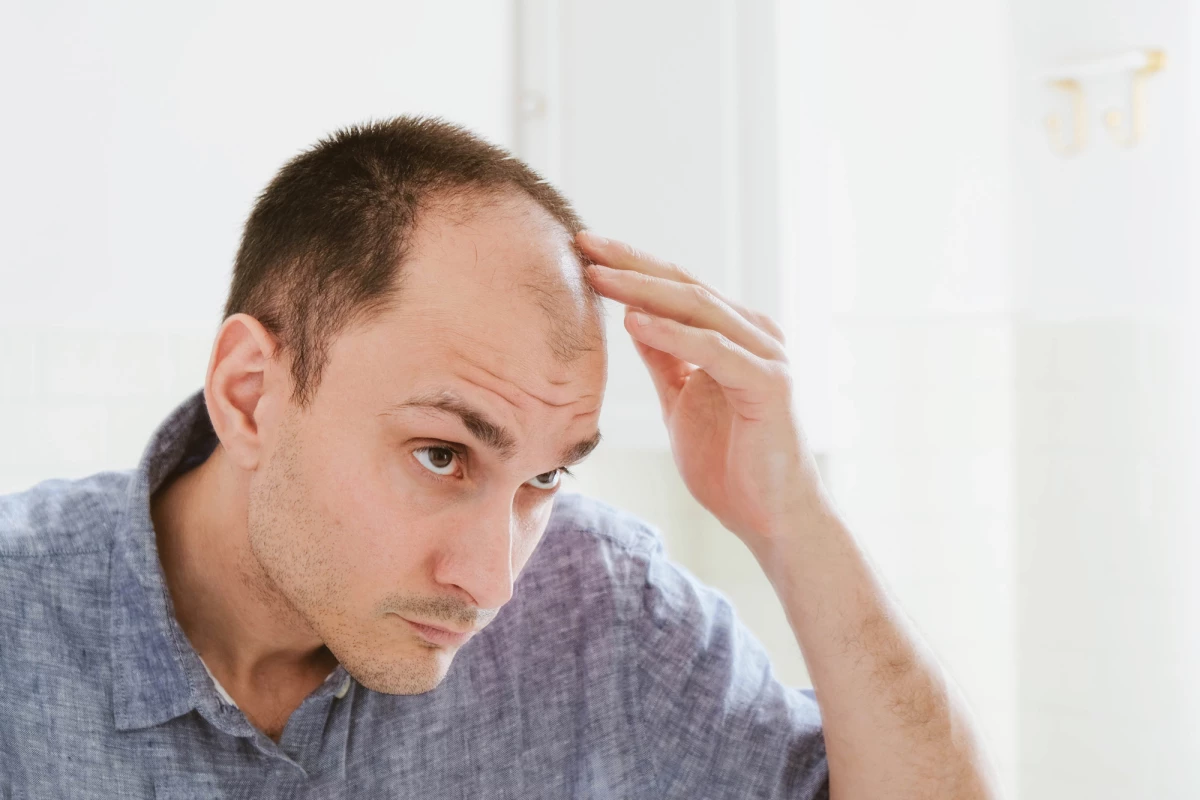As the new year arrives, many will consider going on a diet to shed holiday weight. One popular approach might be intermittent fasting, but a new study says you might want to think twice if having a full head of hair is important to you.
Intermittent fasting is the practice of consuming calories only for a restricted period of time. One popular way of doing this, called the 5:2 method, involves eating full calories five days a week and fasting, or eating less than 500 calories, on the other two days.
Earlier this year, research showed that eating this way not only kept weight-gain at bay, but also helped protect against liver inflammation. Combining the 5:2 method with a particular pattern of eating protein, called "protein pacing," was further shown to boost the quantity of helpful gut microbes and encourage the loss of a greater amount of troublesome visceral fat.
Another approach to intermittent fasting is to only consume calories during a certain window in each day, say from noon to 8 PM. A 2023 study showed that this approach was more effective than simple calorie restrictions in helping diabetics lose weight.
Not so fast
While the health benefits of time-restricted eating continue to mount, a new study from researchers at Westlake University in Zhejiang, China, have reached a finding that might need to put a checkmark in the "cons" column of the practice.
Wondering how intermittent fasting might affect skin and hair tissue, the researchers shaved all of the hair off a group of mice. Then they put them on different diets. One group was only allowed to eat every other day, another ate for eight hours a day and fasted for 16, and the third group was allowed unrestricted access to food.
The mice who could eat all they wanted regrew most of their hair after 30 days. However, both groups of mice on time-restricted eating schedules still hadn't regrown all their hair after 96 days. In an accompanying small study performed on human test subjects, the researchers put 49 healthy adults on an eating plan that only allowed them to consume calories for eight hours a day. After shaving their heads, the team found that their hair regrew at a rate that was 18% slower than a control group.
Sugar and fat
The link between fasting and hair-growth rates, say the researchers, comes down to the effect of calorie restriction on hair follicle stem cells (HFSCs), critical components of new hair growth. In the control group of mice, these cells became active 20 days after they were shaved.
When the body is in a fasting state however, it switches from burning glucose for fuel to burning fat. In the calorie-restricted mice, this led to an increase in free fatty acids near the hair follicles, which caused them to die in a process known as apoptosis, or programmed cell death. So instead of the hair-regrowth cells becoming active in these rodents, they reversed course and died off.
When looking at skin cells as part of the study, the researchers found no effects from intermittent fasting and concluded that epithelial cells, which comprise the skin, are able to ward off the effects of the fatty acids due to an increased resistance to antioxidants.
Indeed, when the team applied the antioxidant vitamin E to the intermittent-fasting mice, it helped mitigate the effects of slower hair regrowth. The same held true in mice that were genetically modified to express more antioxidants in their cells.
Of mice and men
While parallels can be drawn between the human and the rodent studies, the researchers say that testing with a larger group of people needs to be done to confirm intermittent fasting's effect on hair regrowth.
“The human population is very heterogeneous, so the effects might be different for different people,” says senior study author and stem cell biologist Bing Zhang. “Mice also have a very high metabolic rate compared with humans, so fasting and metabolic switching have a more severe effect on mouse HFSCs. We see a milder effect in humans – there are still apoptotic stem cells, but many HFSCs survive. So, there is still hair regrowth; it’s just a little bit slower than usual.”
Zhang also cautions against abandoning the practice of intermittent fasting based on his team's study.
“We don't want to scare people away from practicing intermittent fasting because it is associated with a lot of beneficial effects – it's just important to be aware that it might have some unintended effects,” he concludes.
The study has been published in the journal, Cell Press.
Source: Cell Press via EurekAlert





